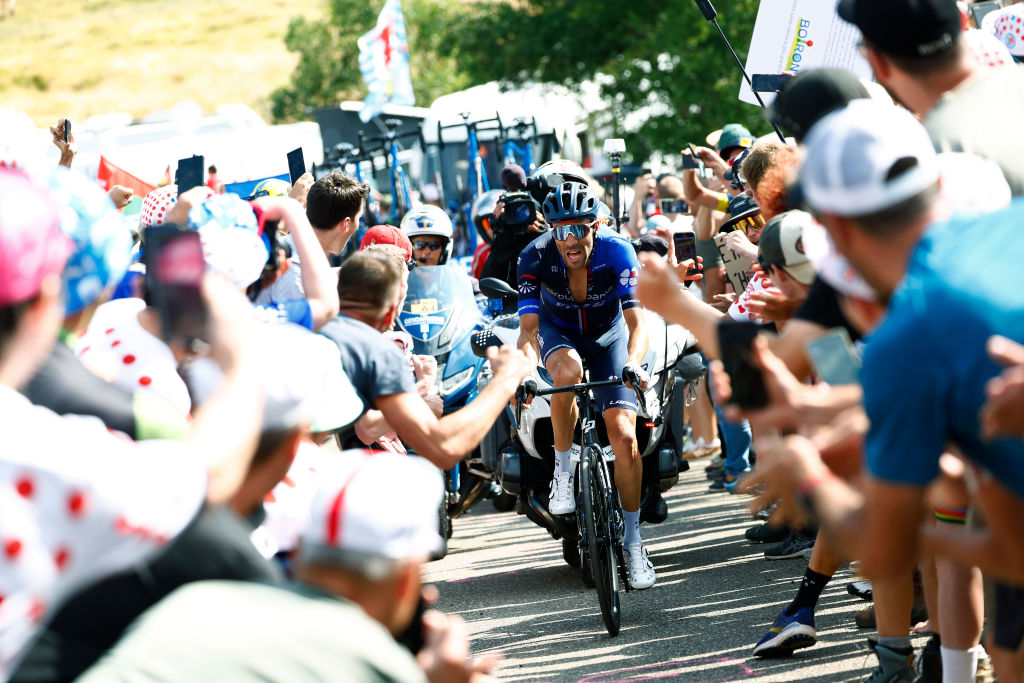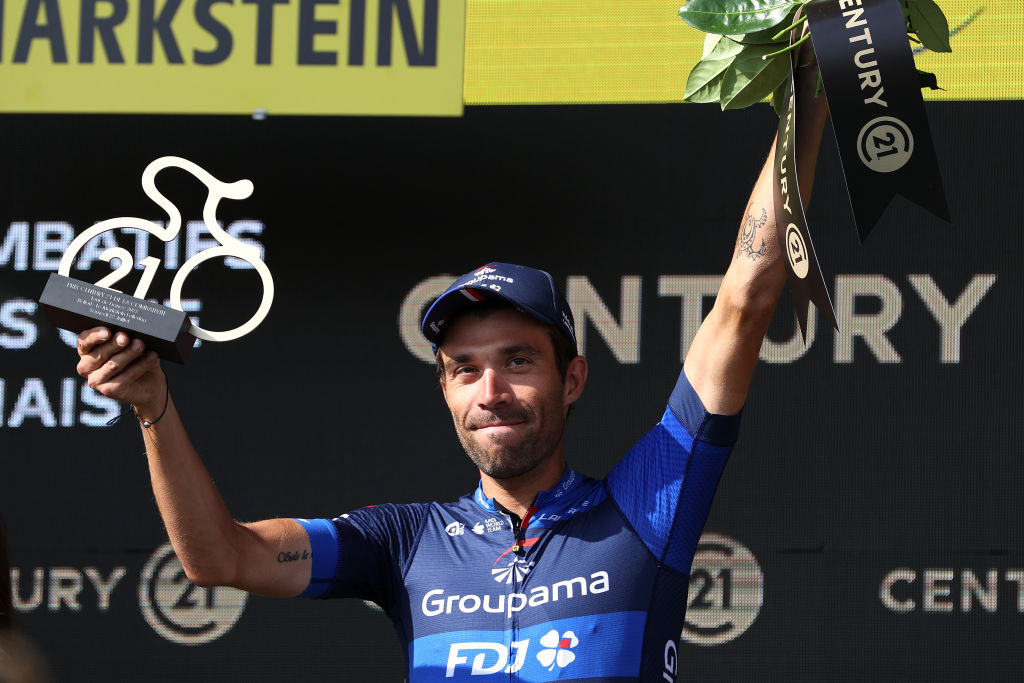
Maybe it was better this way. Sure, a victory would have been the perfect send-off, but perfection was never Thibaut Pinot’s calling card, especially here at the Tour de France. Nothing ever ran smoothly in July. Instead, each Tour seemed to bring only more friction between his hopes and fears, between his beliefs and doubts.
Pinot was blessed with the potential to win the Tour de France but doomed never to do so. Deep down, he might have suspected as much from the outset, but he never refused his burden. Time and again, he lifted himself to tilt once more at the windmill, cycling’s most relatable champion. You must go on. I can’t go on. I’ll go on.
In the last years of his career, blighted by a back injury in 2020 and 2021, Pinot accepted publicly that he would never win the Tour, but that did nothing to dampen the fervour his very presence on the race seemed to inspire, nor did it ever truly temper the expectation he heaped upon himself.
Now 33 and in his final season as a professional, Pinot arrived at his last Tour with no designs on overall victory but with the same compunction to leave his mark.
He did it one last time on Saturday, when stage 20 brought the race deep into his native Vosges, across mountains he had climbed hundreds of times in so many solitary training rides. Pinot was again alone against the mountain and himself, but this time there were thousands upon thousands of fans screaming his name from the roadside.
They had been pitched outside the Groupma-FDJ bus before the start in Belfort, the familiar chant rising as he descended the steps: “Sha-la-la-la-la-la, Thiiiiii-baut Pinot!”
They were on all of the day’s six climbs singing the same song, too, with friend and former teammate Arthur Vichot among the self-styled ultras who had camped out on the ‘Virage Pinot’ on the Petit Ballon.
By the time Pinot reached that point on the course, he was alone at the head of the race. On the day’s third climb, the Col de Grosse Pierre, he fulfilled the first part of his task by bridging up to the day’s break, and he helped to push them a minute or so clear of the yellow jersey group on the Col de la Schlucht.
On the lower slopes of the Petit Ballon, Pinot lifted himself from the saddle and accelerated clear of the break with familiar, graceful pedal strokes. For a few dizzying kilometres, it looked as though he might even pull off the impossible as he beat a path through the walls of noise at the side of the road to crest the summit alone in front.
Instead, the narrative stayed true to the end. Pinot fought gamely, leading onto the final ascent of Platzerwasel, but the yellow jersey Jonas Vingegaard and Tadej Pogacar were moving from behind. After Pinot was joined again by fellow escapees Warren Barguil and Tom Pidcock, they were caught and passed by the men who had dominated the Tour in the final years of his career.
Pinot would finish the day in seventh place and he rides into Paris on Sunday in 11th overall, but the result was a mere footnote, a simple statistic.
As was so often the case, the emotions were the real story. When Pinot crossed the line, he found his father Régis standing with the Groupama-FDJ soigneurs. Pinot père patted Pinot fils discreetly before he was led away to the podium to receive the prize for the day’s most combative rider. There was surely no other imaginable contender for the accolade.
“I lived some incredible emotions, I had goosebumps for the whole stage,” Pinot said afterwards.
“The emotions of success are special, but this goes beyond sport. I left a mark in the hearts of the people, and that’s almost more beautiful than a victory. There will be emotions in Paris, but my public, my region, my stage, they were. The Champs-Élysées is different, it’s the yellow jersey’s day. This was my day, and these will be my last images of the Tour.”
Vosges

Outside the Groupama-FDJ team bus, Pinot’s manager Marc Madiot was crying performative tears, an echo of the grandstanding cheers that greeted his charge’s famous victories in Porrentruy in 2012 and atop the Tourmalet in 2019.
The best description of the prevailing mood and the entire Pinot phenomenon, however, had already been provided by the rather more understated directeur sportif Philippe Mauduit on the eve of the stage.
“We just have to be thankful to life for giving us these emotions,” the directeur sportif smiled then.
Pinot said something similar on Saturday as he recalled the moment he raced alone on the Petit Ballon, riding past the spot where his friend Vichot was leading the chorus among the Collectif Ultras Pinot.
“I can't believe it was all for me,” Pinot said.
“I never imagined I was going to be alone on the Petit Ballon, and when I found myself there, I wondered if it was really true or not. The best farewell would have been to win, but I can’t be too greedy. That only happens in books or television shows, even if I wasn’t far off winning.”
Pinot’s Tour de France career ends with three stage victories and third overall in 2014 to show from ten appearances. His impact on this race can never be confined to numbers. It’s better explained by the outpouring on the open expanses of the Vosges on Saturday.
Never mind the record books, the memories and emotions are what endure. Or as Jacques Prévert’s line, so often cited by the late Gianni Mura in his dispatches from the Tour, would have it: ‘Le jardin reste ouvert pour ceux qui l'ont aimé.' The garden stays open for those who loved it.







